Related Research Articles

Murray Newton Rothbard was an American economist of the Austrian School, economic historian, political theorist, and activist. Rothbard was a central figure in the 20th-century American libertarian movement and a founder and leading theoretician of anarcho-capitalism. He wrote over twenty books on political theory, history, economics, and other subjects.
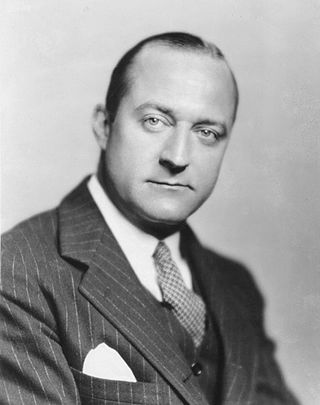
Henry Stuart Hazlitt was an American journalist who wrote about business and economics for such publications as The Wall Street Journal, The Nation, The American Mercury, Newsweek, and The New York Times.

Hans-Hermann Hoppe is a German-American economist of the Austrian School, philosopher and political theorist. He is Professor Emeritus of Economics at the University of Nevada, Las Vegas (UNLV), Senior Fellow of the Ludwig von Mises Institute, and the founder and president of the Property and Freedom Society.
Ludwig von Mises Institute for Austrian Economics, or Mises Institute, is a nonprofit think tank focused on libertarianism and Austrian economics headquartered in Auburn, Alabama, United States. It is named after the Austrian School economist Ludwig von Mises (1881–1973). It promotes heterodox Misesian economics and is known as a center of radical libertarian thought in the United States.
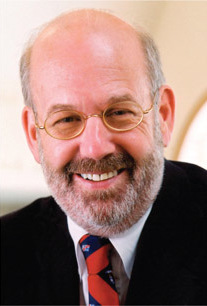
Llewellyn Harrison Rockwell Jr. is an American author, editor, and political consultant. A libertarian and a self-professed anarcho-capitalist, he founded and is the chairman of the Mises Institute, a non-profit dedicated to promoting the Austrian School of economics.

Jeffrey Albert Tucker is an American libertarian writer, publisher, entrepreneur and advocate of anarcho-capitalism and Bitcoin.
Ralph Raico was an American libertarian historian of European liberalism and a professor of history at Buffalo State College.
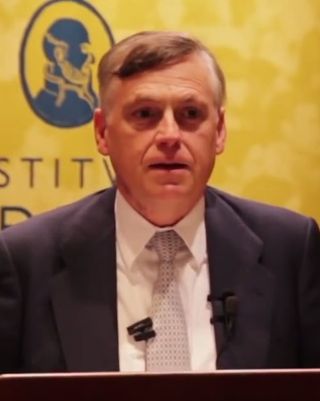
Jesús Huerta de Soto Ballester is a Spanish economist of the Austrian School. He is a professor in the Department of Applied Economics at King Juan Carlos University of Madrid, Spain and a Senior Fellow at the Mises Institute.
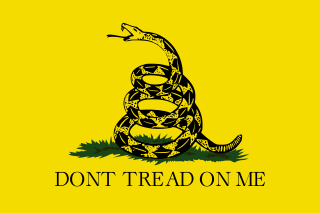
In the United States, libertarianism is a political philosophy promoting individual liberty. According to common meanings of conservatism and liberalism in the United States, libertarianism has been described as conservative on economic issues and liberal on personal freedom, often associated with a foreign policy of non-interventionism. Broadly, there are four principal traditions within libertarianism, namely the libertarianism that developed in the mid-20th century out of the revival tradition of classical liberalism in the United States after liberalism associated with the New Deal; the libertarianism developed in the 1950s by anarcho-capitalist author Murray Rothbard, who based it on the anti-New Deal Old Right and 19th-century libertarianism and American individualist anarchists such as Benjamin Tucker and Lysander Spooner while rejecting the labor theory of value in favor of Austrian School economics and the subjective theory of value; the libertarianism developed in the 1970s by Robert Nozick and founded in American and European classical liberal traditions; and the libertarianism associated with the Libertarian Party, which was founded in 1971, including politicians such as David Nolan and Ron Paul.

Robert Patrick Murphy is an American economist. Murphy is research assistant professor with the Free Market Institute at Texas Tech University. He has been affiliated with Laffer Associates, the Pacific Research Institute, the Institute for Energy Research (IER), the Independent Institute, the Ludwig von Mises Institute, and the Fraser Institute.

Ludwig Heinrich Edler von Mises was an Austrian-American Austrian School economist, historian, logician, and sociologist. Mises wrote and lectured extensively on the societal contributions of classical liberalism and the power of consumers. He is best known for his work on praxeology studies comparing communism and capitalism.
Farmand was a business magazine published in Oslo, Norway, from 1891 until it was discontinued in January 1989. The name farmand was from an old Norse word for a tradesman. It is composed of the words far as in to "travel far and wide" combined with the word man. The old Norwegian king Bjørn Farmann or "Bjørn the Tradesman" bore this title.

Trygve J. B. Hoff born in Kristiana, Norway was a Norwegian businessman, writer and editor of Farmand, the Norwegian business magazine.

The Panic of 1819: Reactions and Policies is a 1962 book by the economist Murray Rothbard, in which the author discusses what he calls the first great economic crisis of the United States. The book is based on his doctoral dissertation in economics at Columbia University during the mid-1950s.
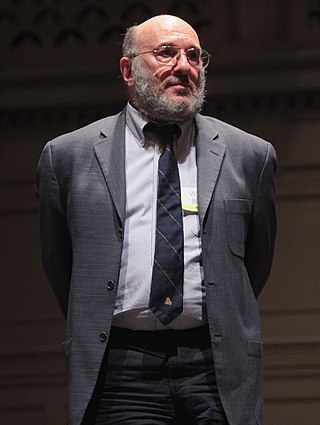
Walter Edward Block is an American Austrian School economist and anarcho-capitalist theorist. He currently holds the Harold E. Wirth Eminent Scholar Endowed Chair in Economics at the School of Business at Loyola University New Orleans, and is a senior fellow of the non-profit think-tank Ludwig von Mises Institute in Auburn, Alabama. He is best known for his 1976 book Defending the Undefendable, which takes contrarian positions in defending acts which are illegal or disreputable but Block argues are actually victimless crimes or benefit the public.

Radicals for Capitalism: A Freewheeling History of the Modern American Libertarian Movement is a 2007 book about the history of 20th-century American libertarianism by journalist and Reason senior editor Brian Doherty. He traces the evolution of the movement, as well as the life stories of Ayn Rand, Milton Friedman, Ludwig von Mises, F. A. Hayek, and Murray Rothbard, and details how they intertwined.

Floyd Arthur "Baldy" Harper was an American academic, economist and writer who was best known for founding the Institute for Humane Studies in 1961.
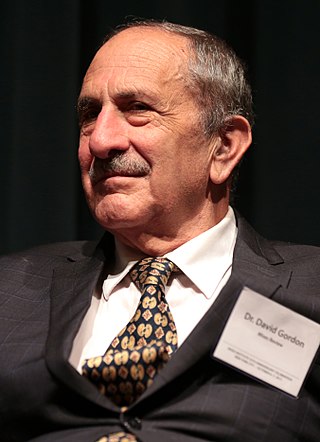
David Gordon is an American libertarian philosopher and intellectual historian influenced by Murray Rothbard's views of economics. He is a senior fellow of the Ludwig von Mises Institute, a libertarian think tank, and is editor of The Mises Review.
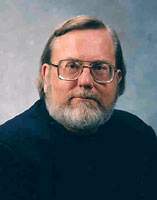
Larry James Sechrest was an American economist who advocated the ideas of the Austrian School. He was a professor of economics at Sul Ross State University and was director of the university's Free Enterprise Institute.

William Herbert Peterson was an American economist who wrote on the insights of Ludwig von Mises through teaching, writing, and speaking on the relationship between free enterprise and human liberty. Peterson died in 2012 at the age of 91.
References
- ↑ Lythgoe, Darrin (June 22, 2014). "Ole-Jacob Hoff". Erik Berntsens slektssider. Retrieved June 23, 2014.
- ↑ "Historical Page Dedicated to Farmand". Farmandprisen. Retrieved June 22, 2014.
- 1 2 Chamberlain, John (June 29, 1966). "Europeans suffer from self-delusion". The Evening Independent. St. Petersburg, Florida.
- ↑ Snoen, Jan Arild (April 26, 2011). "Minerva's old nemesis". Minervanett.no. Retrieved June 22, 2014.
- ↑ "The Freeman Honor Roll of Authors, 1956–1996". Foundation for Economic Education. May 1, 1996. Retrieved June 22, 2014.
- ↑ "Senior Fellows, Faculty Members, and Staff". Ludwig von Mises Institute. Retrieved June 22, 2014.
- ↑ Rothbard, M. N.; Block, W. (1990). "Editorial Board". Review of Austrian Economics. 4 (1). ISSN 0889-3047.
- ↑ Rothbard, M. N. (1991). "Editorial Board". Review of Austrian Economics. 5 (1–2).
- ↑ Chamberlain, John (June 29, 1966). "Europeans suffer from self-delusion". The Evening Independent. St. Petersburg, Florida.
- ↑ Chamberlain, John (May 1, 1978). "A Reviewer's Notebook – 1978/5". The Freeman. New York.
- ↑ Hoff, Ole-Jacob (1982). "The Myth of Scandinavia's 'Model Welfare State'". Economic Affairs. 2 (2): 126–128. doi:10.1111/j.1468-0270.1982.tb00431.x.
- ↑ Hoff, Ole-Jacob (1983). "Little Hope for Markets in the USSR". Economic Affairs. 3 (3): 214. doi:10.1111/j.1468-0270.1983.tb01506.x.
- ↑ Hoff, Ole-Jacob (January 1, 1968). "Politics is Other People's Money". The Freeman: 29–30. ISSN 1559-1638.
- ↑ Hoff, Ole-Jacob; Kein, Richard (1980). "Tales from the Public Sector". Policy Review: 153–159. ISSN 0146-5945.
- ↑ Hoff, Ole-Jacob (1974). "Socialism at the Crossroads". Reason: 53–54. ISSN 0048-6906.
- ↑ Hoff, Ole-Jacob (February 1982). "Which Way Norway". Reason: 28–30. ISSN 0048-6906.
- ↑ Hoff, Ole-Jacob (May 1983). "Scandinavia: Quiet Revolution". Reason: 48. ISSN 0048-6906.